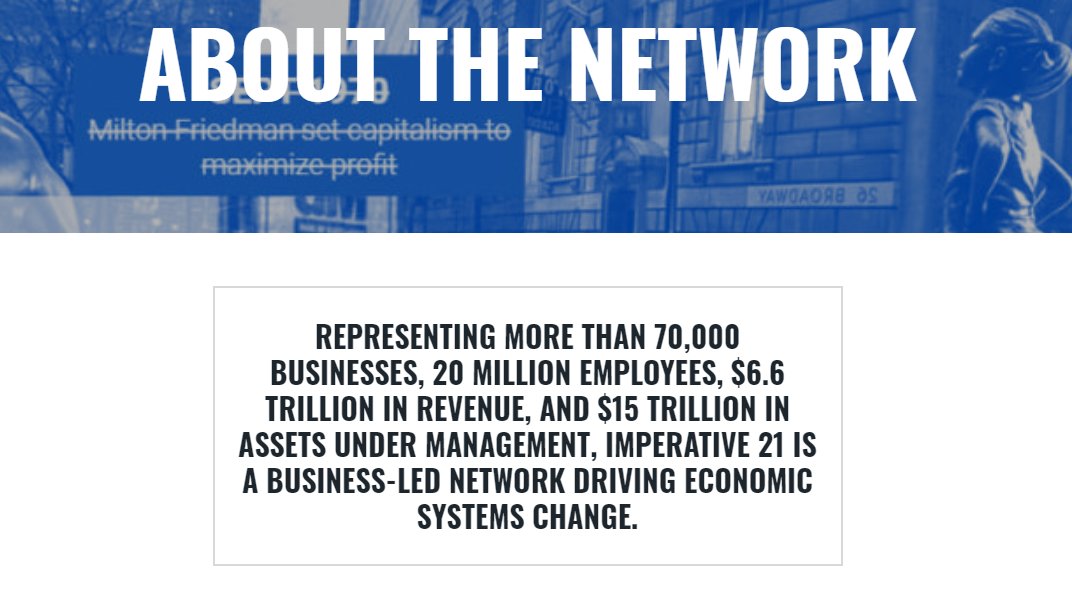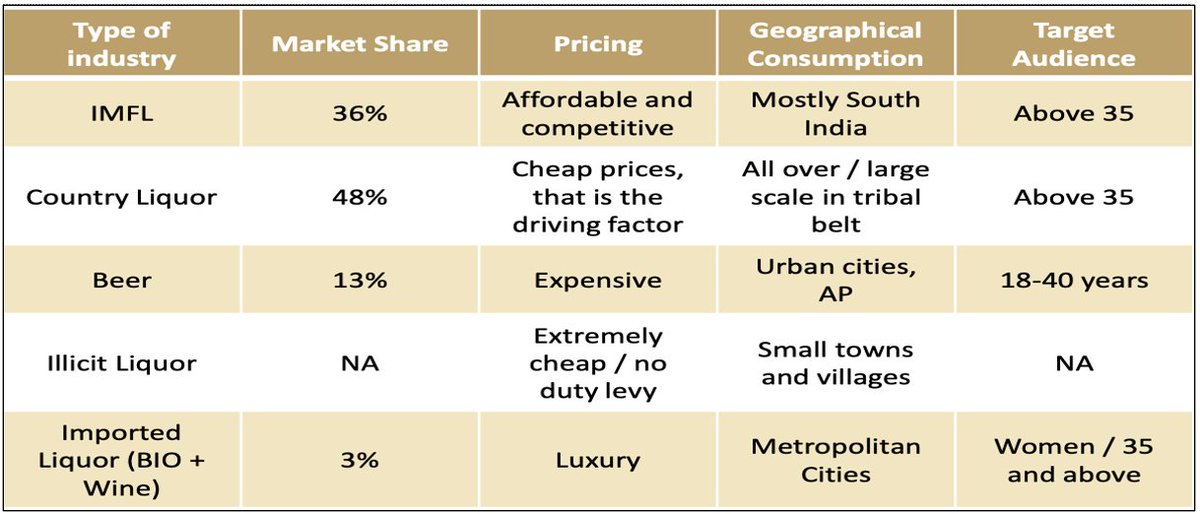Categories Economy
Obviously a longtime Disney D2C bull; I was astounded, shocked by slate's quality, range, volume.
This is Disney going beyond a digital "Vault" plus originals. It is saying all of your favorite stories, more,
This feels like the true unveiling of Disney+ versus April 2019, tbh
— Matthew Ball (@ballmatthew) December 10, 2020
2/ Not just a stronger Disney+, but one that hugely raises the tablestakes of competition, growth, press coverage, notability.
Paramount+ plans new Star Trek year round. Feels quaint now. Peacock will have a Jurassic Park + Fast series eventually.
In other words, the year-long Disney+ Open Beta attracted 87M subscribers.
— Chris Lacy (@chrismlacy) December 10, 2020
3/ In "Content, Cars, and Comparisons in the 'Streaming Wars'", I wrote about how Disney $1B in content spend gets several billion of equivalent spend through its resonance
Mando was a top 5 show per @ParrotAnalytics in 2019. Disney thinks it can have 10 "Top 5s" a year.
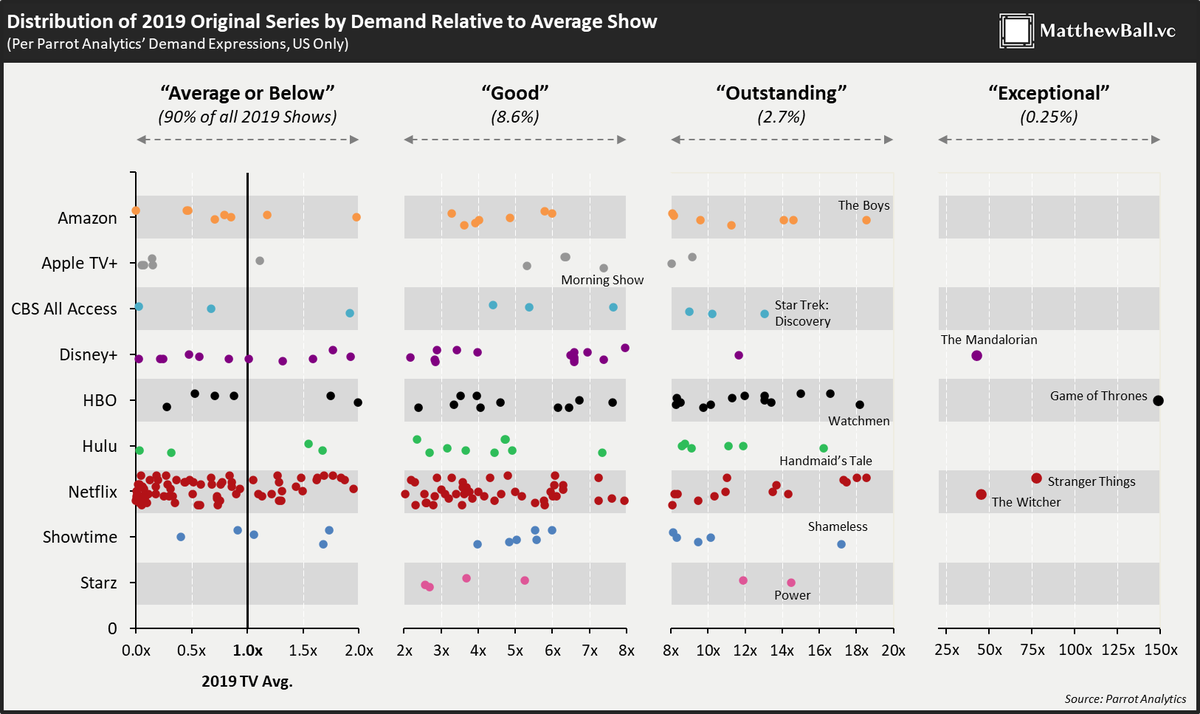
4/ Trade talk can be misleading, but it takes only a cursory look at Twitter, the most popular shows of the past decade (Walking Dead, Thrones, Mando, Stranger Things), Disney's dominance at the box office (8 of top 10 in 2019) and wonder how to beat
A former exec at a global media giant: "This is how the game is now played. If other companies want to compete, this is now the threshold... it's a kind of cultural shock and awe" (With permission)
— Matthew Ball (@ballmatthew) December 11, 2020
5/ Roadmap doesn't just suck oxygen out of streaming wars (as Netflix did from 2014-18), it will enable Disney+ to rapidly grow its price
If I pay $54 a year to use Disney+ for 2 months, what happens when it's year-round?
Worth $15 month in
I pay $27 per month for Disney+. This is the biggest bull thesis for Disney.
— Matthew Ball (@ballmatthew) November 14, 2020
V good points but overall I stick with the conclusion that this is a v risky deal.
— Alan Beattie (@alanbeattie) January 5, 2021
1. It\u2019s overstating it to say that COM now has final say over investment. FDI screening remains a MS competency. COM has had to take a v secondary supporting role over Huawei and 5G.
1/n https://t.co/RVg2jnoFgK
Also reading this from @gideonrachman on EU-China. My view (cynically?) - that EU-China is a deal that makes a lot of sense given a probably unresolvable trade policy superpower triangle with the US, and best for the EU to move while China will.
The US and EU roughly agree on China that it should do some things differently, but not really the details of what those are. Meanwhile the EU and US have long standing trade policy differences, which neither (or their key stakeholders) prioritise resolving.
For the EU, the China deal has sent a message to the new US administration, you can't just tell us what to do. And delivered some (probably marginal in reality) benefits to business. For China, this is the 3rd deal with EU or US in 12 months. Pretty clear strategy there.
The key assumption that lies at the heart of too much writing on EU-US relations is that the two should cooperate on trade. After 25 years of largely failing to do so, I'd suggest we might want to question that a bit more deeply.
In January, we were featured in an article published by @StreetsblogMASS about the Central Section construction, which had just gotten
Also in January, the City of Westfield advanced a project to construct a spur off of the Columbia Greenway, connecting Country Club Dr to the Shaker Rd crossing.
We saw the old railroad bridges over Thomas, Chapel, and Orange Streets removed in March, in preparation for new ones to be installed as part of the Central Section.
https://t.co/loHR3LqJAG

As the weather got warmer through the spring, there was a large increase in trail users, with April seeing a 115% increase from the previous
1/14
China is building the world's most advanced UHV grid right now.
UHV lines are good for carrying power over long distances. The high voltage level reduces line loss. But they are very expensive to build.
China's UHVDC Network now:
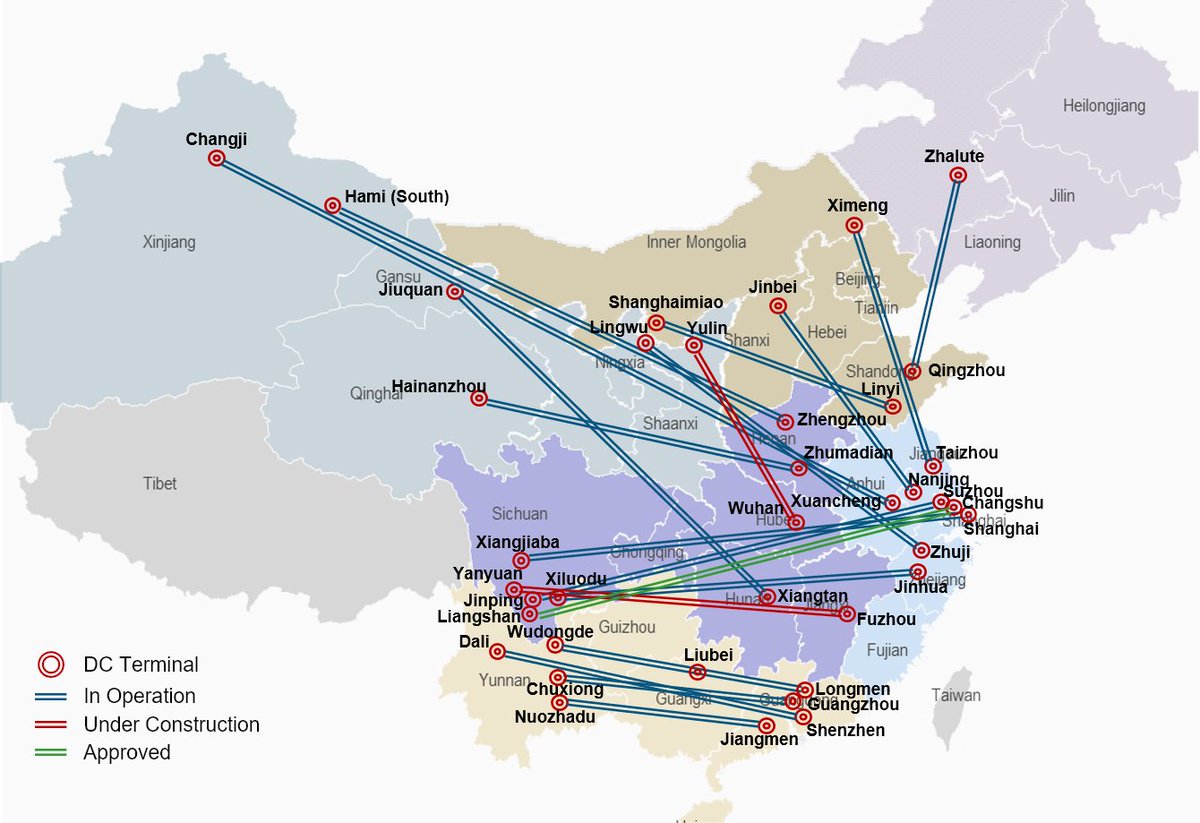
2/14
In the rest of the world, UHV lines have generally been used sparingly. Submarine power cables (e.g. connecting UK to mainland Europe) and some huge hydropower projects in Quebec are some notable exceptions.
China is building UHV lines on a scale never seen before.
3/14
So why is China different? Geography plays a huge role. China's load centers are in the coastal East and South, while the best wind, solar, and hydro resources are in the North, Northwest, and Southwest. Power (esp. RE) is being generated far from where it's needed most.
4/14
In the past, poor regional interconnectivity has been a big contributor to low offtake levels of renewable energy. Of course a glut of coal power also played a role. Curtailment has improved in recent yrs tho. I discussed regional grids before:
China Power Sector For Dummies- Part 1: Grids and Dispatch - Getting Smarter
— David F. (@pretentiouswhat) August 18, 2020
1/10
First, Chinese doesn't have a national grid, at least not in the way that small countries do. There are 6 regional grids (N, NE, NW, E, C, S). State Grid runs 5 of them and Southern Grid runs 1.
5/14
UHV lines provide a inter-region backbone to transport power hundreds or thousands of km across the country. The UHVDC lines are used for the longest distances, while UHVAC lines are used for shorter distances, often within the same regional grid.
China's UHVAC lines now:
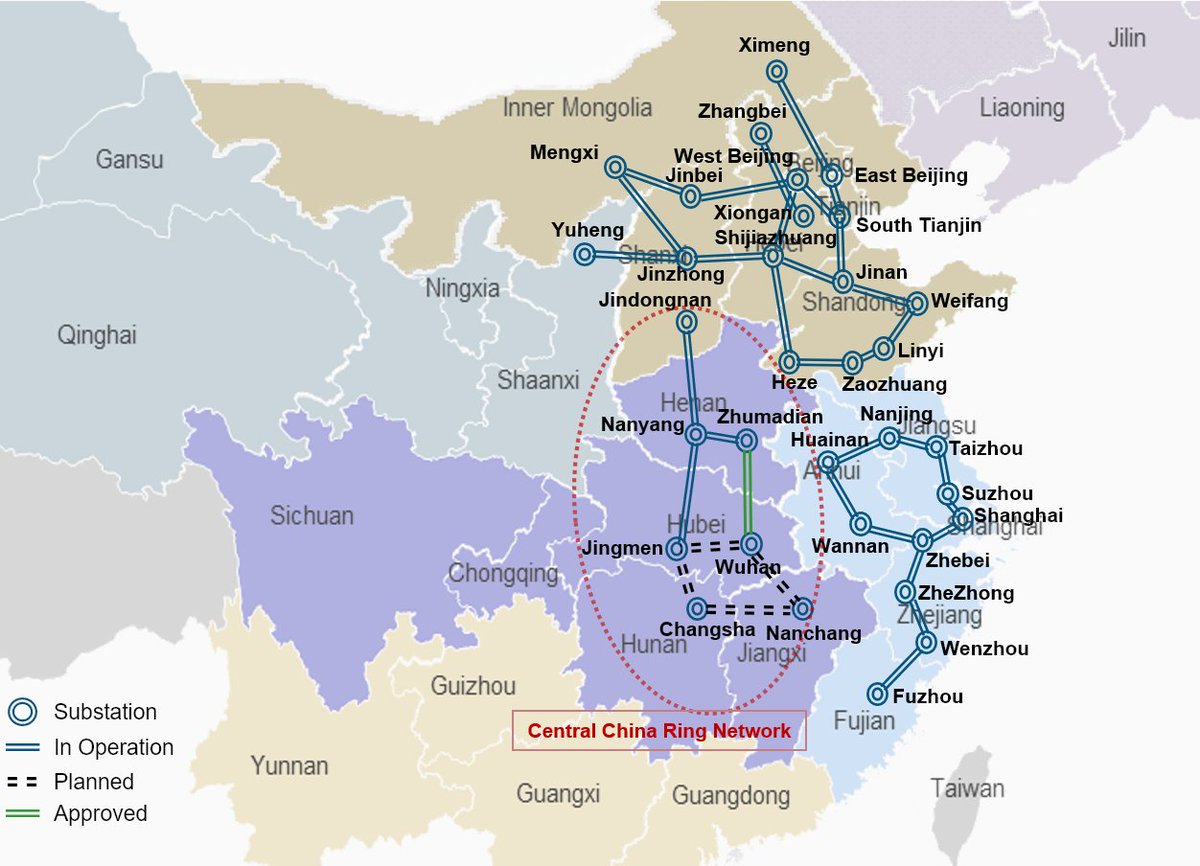
Falls of Rome & Tang in 1st millennium were worse, but at least they were recorded. Records of the even worse Bronze Age Collapse around 1200 BC barely survived for some areas, & for other regions all we have are archaeological indications that they regressed to the stone age.
Bronze Age Collapse & resultant trade breakdown led to cession of bronze production in the Don River Basin. Locals reverted to stone & bone tools, then figured out how to make iron tools. Their neighbors adopted iron over the next few centuries. pic.twitter.com/HoDk52cLuH
— Nemets (@Peter_Nimitz) August 29, 2020
Further back in the 3rd millennium BC, an even worse series of catastrophes occurred - the Indo-European invasions - ending the Megalith Builder Civilization with their urban settlements & leaving much of Europe depopulated for 600 years.
There are no traces of permanent Corded Ware settlements anywhere - strongly supporting that they were nomadic cattle herders. Only after Bell Beaker arrival in 2300 BC do sedentary agricultural settlements return. pic.twitter.com/GkPluSgbbt
— Nemets (@Peter_Nimitz) May 3, 2020
By the time of their destruction the Megalith Builders themselves had been in a centuries long decline from their Golden Age in late 5th & early 4th millennium. Their great realms had likely disintegrated around 3500 BC into smaller chiefdoms engaging in endemic warfare.
Shennan: massive EEF population growth in Ireland 4000-3600 BC, followed by population decline & reforestation 3600-3400 BC. pic.twitter.com/HksEl16OjH
— Nemets (@Peter_Nimitz) June 18, 2020
The Megalith Builders themselves were the result of WHG chieftains overthrowing the decadent EEF chiefs like those of the Linear Ceramics around 4400 BC & subjugating an 1800 year old neolithic civilization. Possibly related to spread of copper-working.
Resurgence of Hunter-Gatherer ancestry in Copper Age Balkan EEF populations of mid 4000s & return of hunter-gatherers cultural customs. EEF Cucuteni\u2013Trypillians experienced this too - were 80% EEF, 10% EHG, 10% WHG in ancestry, showing they mixed with local HGs. pic.twitter.com/Tqf5yoc99U
— Nemets (@Peter_Nimitz) July 26, 2020
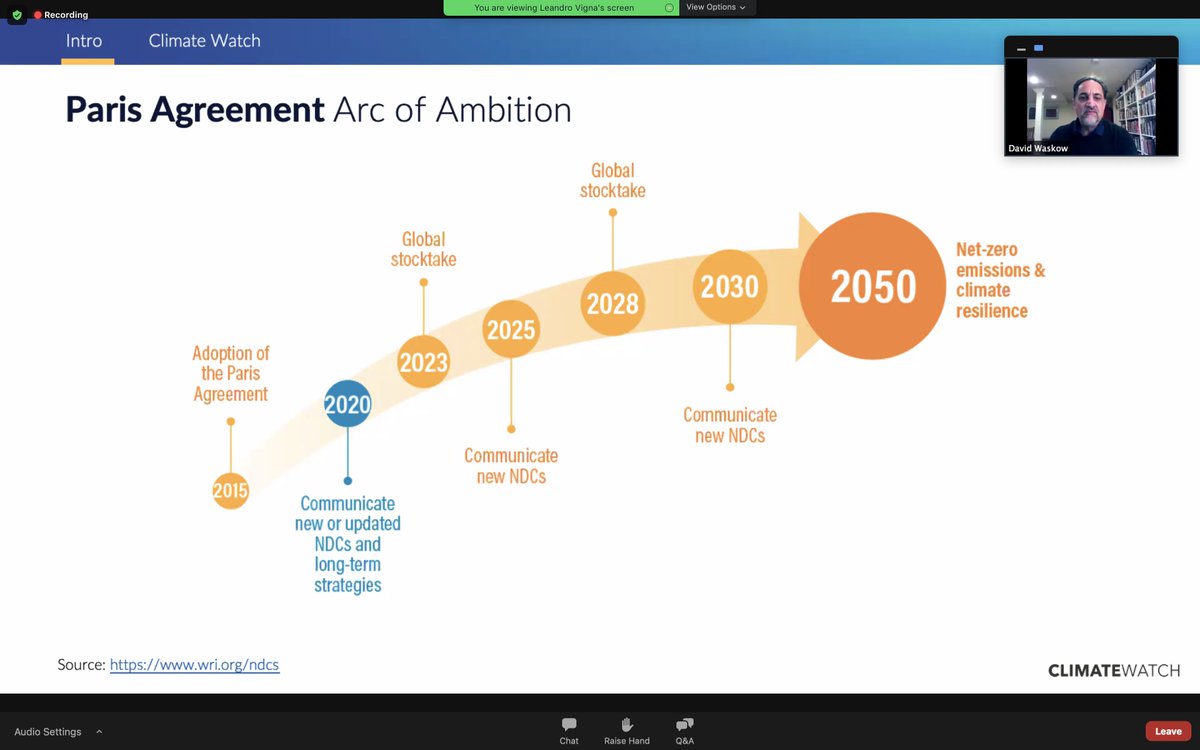
The world is currently WAY over our #carbonbudget for where we need to be to align with #ParisAgreement. Orange= countries will do under any event; red = conditional (e.g., will do if they get needed finance). We have LOTSA emissions to reduce fast @davidwaskow @WRIClimate (2/n)
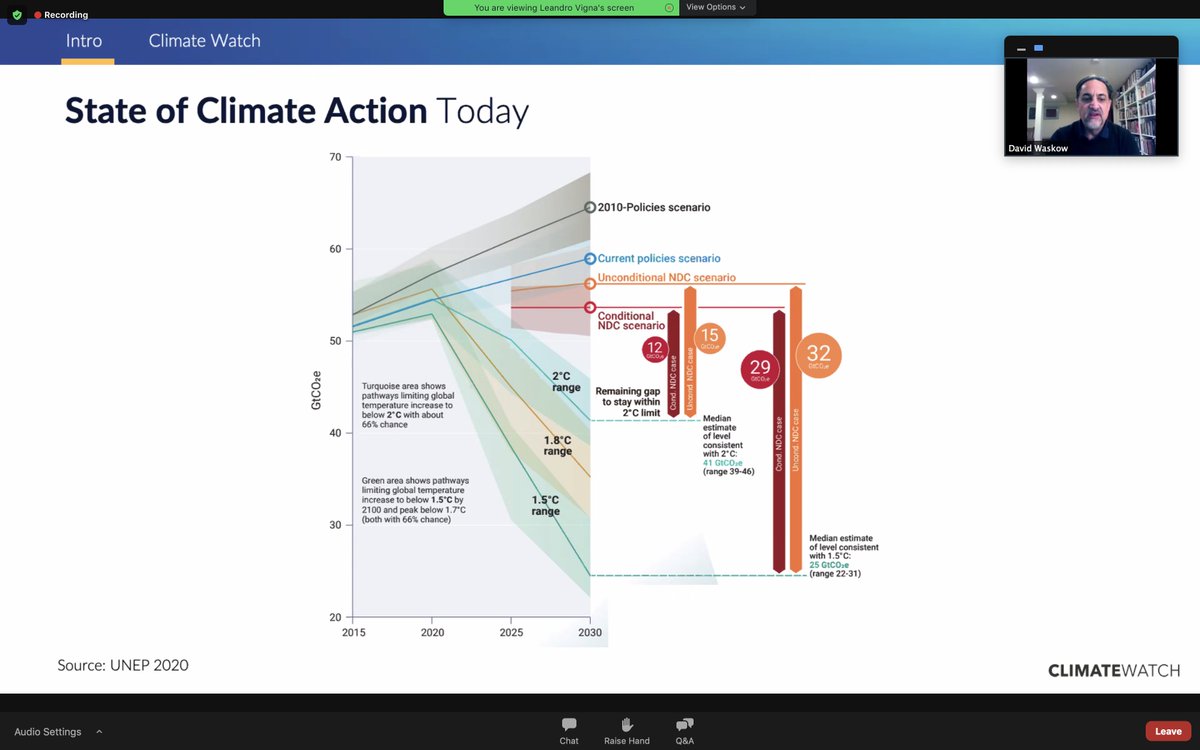
Of 21 indicators assessed for #ParisAgreement:
2 are on track (e.g., crop yields)
13 right direction but too slow (e.g., need electric vehicle sales to be 22x faster than now)
2 in wrong direction: forests, ag emissions
@davidwaskow from @climateactiontr, @WRIClimate et al 3/n
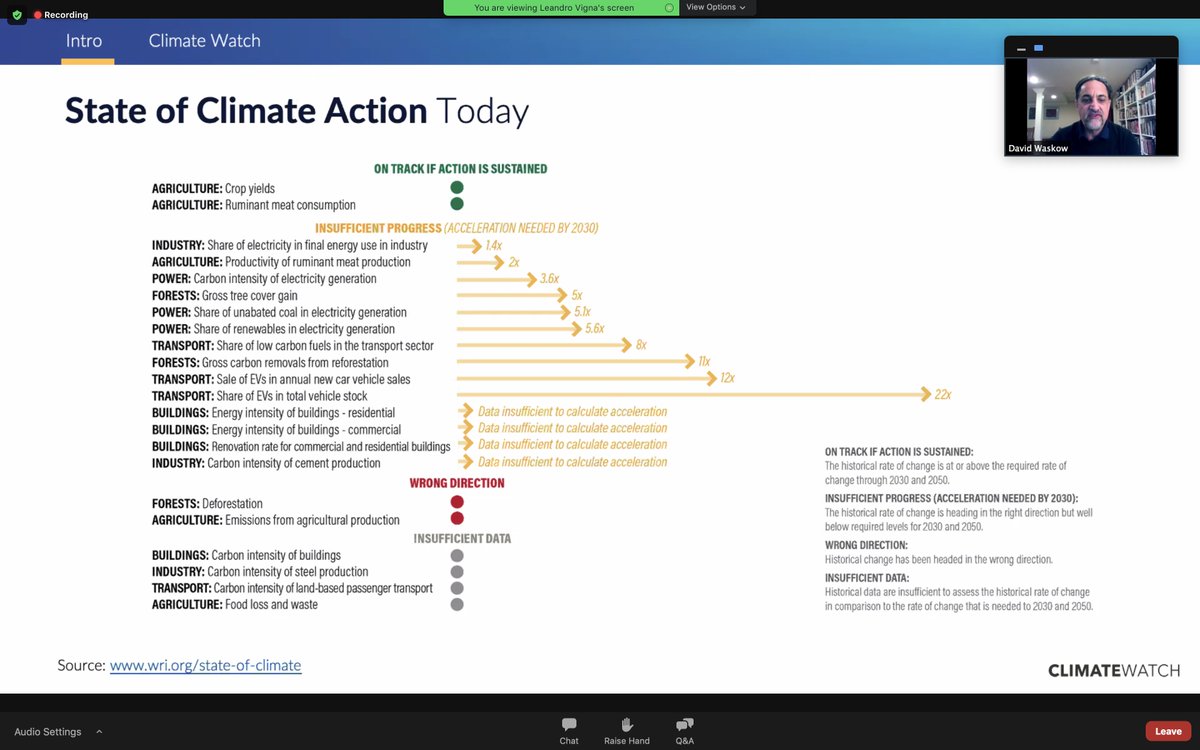
Current state of play: 12 Dec 2021= 5 year #ParisAgreement anniversary. Look for more announcements of national climate pledges. Some new pledges already released, but many govt's focused on #COVID19 recovery- important to link with climate-compatible recovery. @davidwaskow 4/n
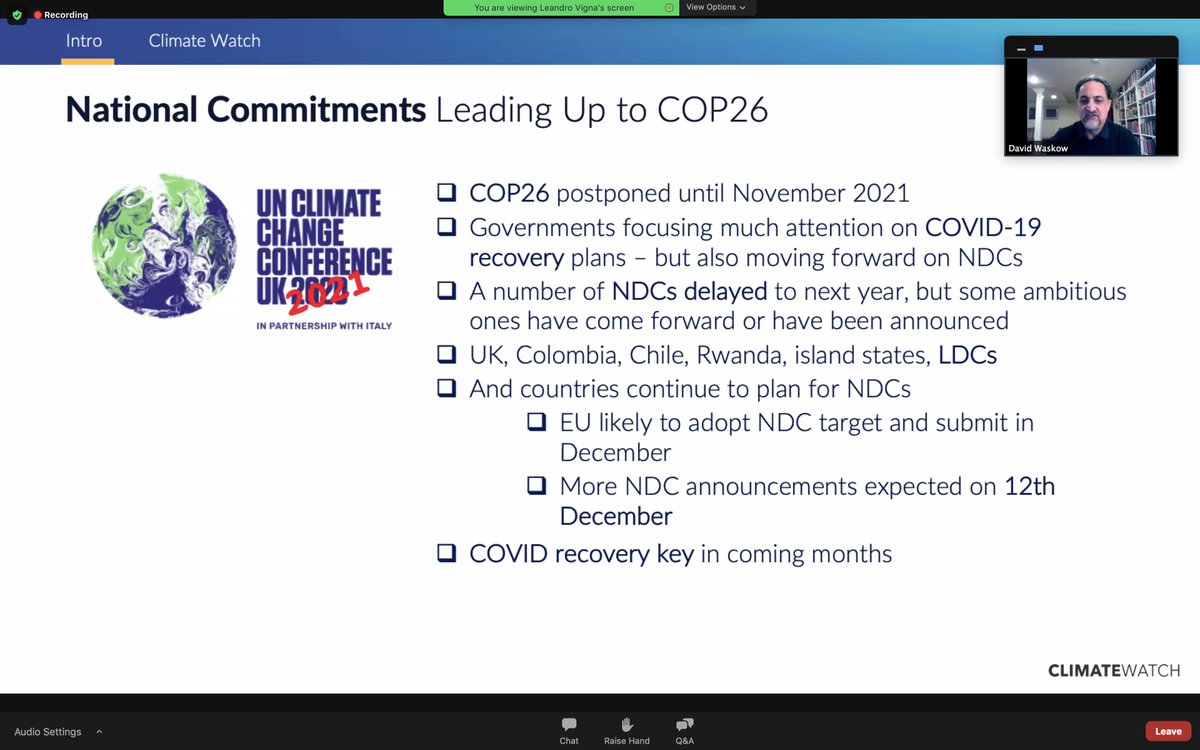
What is https://t.co/kymb46d9yv?
100s of credible datasets,
100,000s of data points
to assess #climate trends, targets, bring transparency to inform + drive #ClimateAction.
For govts, biz, researchers, NGOs
Run by @JohannesFried.
(See also other forest, energy, ... tools) 5/n










